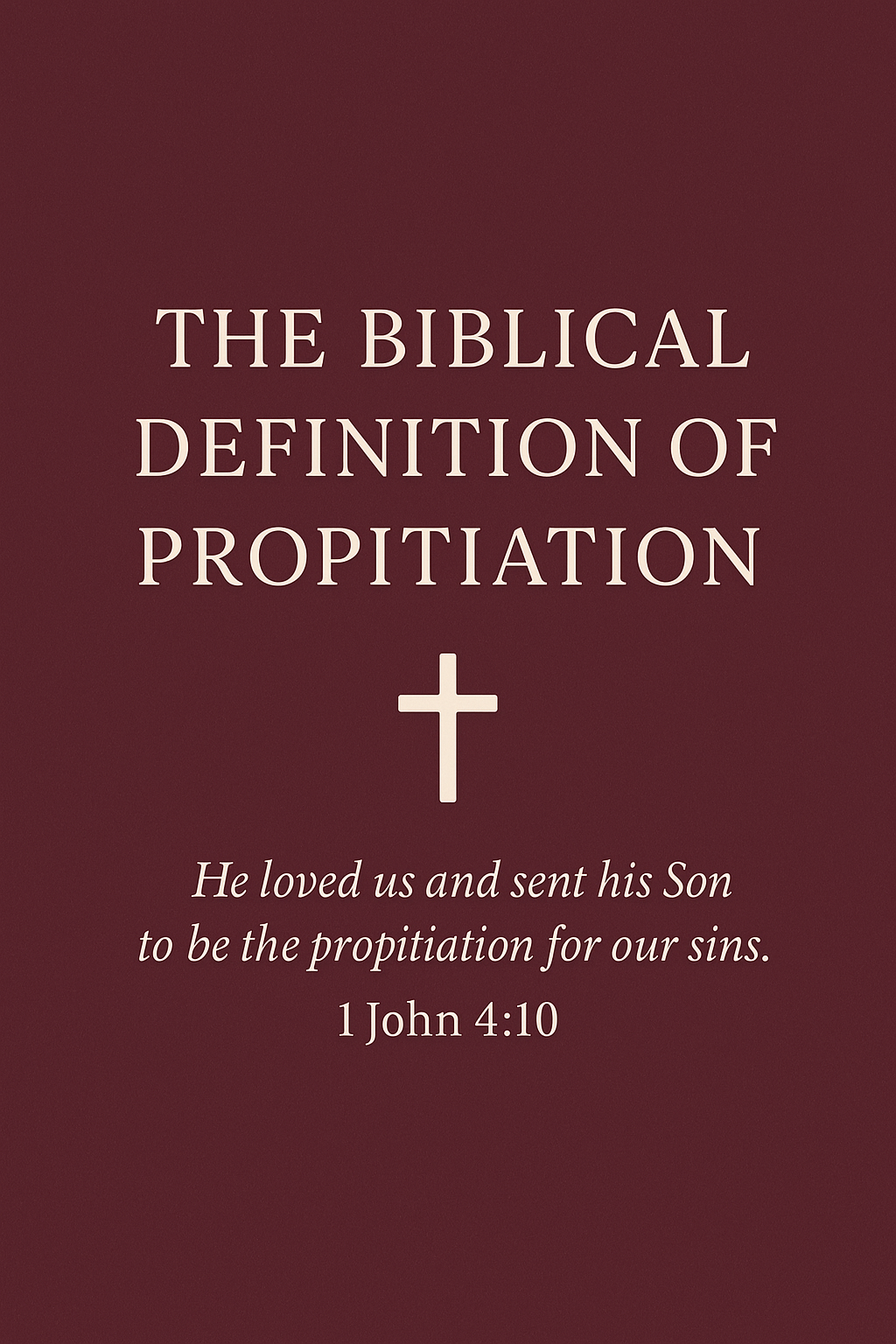The Biblical Definition of Grace: A Comprehensive Exploration
Grace is a foundational concept in Christian theology, and understanding the biblical definition of grace is essential for grasping God’s unmerited favor and kindness toward humanity. For those seeking to deepen their understanding of what the Bible truly teaches about grace, this post will unpack the biblical definition, explore its Old and New Testament roots, and examine its transformative power in the believer’s life. Along the way, we’ll reference key Scriptures and insights from respected sources to provide a robust, nuanced view of grace.
What Is Grace? A Working Definition
At its core, grace in the Bible refers to the unmerited favor and kindness of God toward humanity. It is God’s free gift—His goodness and generosity extended to us not because of our merit, but because of His loving character. 1347 The Hebrew word most often translated as “grace” is khen (חֵן), meaning favor or acceptance, while the Greek word is charis (χάρις), meaning kindness or favor with a focus on the benefit given. 43
“Grace is when God gives us what we don’t deserve—any good thing.”6
Grace in the Old Testament
The Hebrew Concept: Khen
In the Old Testament, khen describes a posture of favor, often from a superior to an inferior. For example, when someone found “favor” in the eyes of a king, they received kindness or help they could not demand or earn.
Exodus 34:6: “The LORD, the LORD, the compassionate and gracious God, slow to anger, abounding in love and faithfulness.” Here, God reveals His own character as gracious (khen), showing that grace is not just something God does, but who He is. 14
Genesis 6:8: “But Noah found grace in the eyes of the LORD.” Noah received God’s favor, not because he was perfect, but because God chose to extend kindness.
Grace as God’s Generosity
Throughout the Old Testament, God’s grace is seen in His willingness to forgive, restore, and bless His people despite their failures. It is His enduring love and generosity that sustains Israel, even when they stray. 13
Grace in the New Testament
The Greek Concept: Charis
In the New Testament, charis expands the concept of grace to encompass the fullness of God’s saving work in Christ.
Ephesians 2:8-9: “For by grace you have been saved through faith. And this is not your own doing; it is the gift of God, not a result of works, so that no one may boast.” 467
Romans 3:24: “...and all are justified freely by his grace through the redemption that came by Christ Jesus.” 67
Grace is not only the means by which we are saved, but also the power by which we live the Christian life.
Grace as God’s Action
Grace is more than forgiveness; it is God’s ongoing, benevolent action in our lives. It justifies, transforms, empowers, and sustains believers. 76
Titus 2:11-12: “For the grace of God has appeared, bringing salvation for all people, training us to renounce ungodliness and worldly passions, and to live self-controlled, upright, and godly lives in the present age.” 57
2 Corinthians 12:9: “But he said to me, ‘My grace is sufficient for you, for my power is made perfect in weakness.’” 4
Key Aspects of Biblical Grace
Unmerited Favor: Grace is a gift, not earned or deserved.
Key Scriptures: Ephesians 2:8-9; Romans 11:6
God’s Character: Grace flows from God’s nature; He is gracious.
Key Scriptures: Exodus 34:6; Psalm 145:8Salvation: We are saved by grace through faith, not by works.
Key Scriptures: Ephesians 2:8-9; Titus 3:7Empowerment: Grace enables us to live godly lives and overcome sin.
Key Scriptures: Titus 2:11-12; Romans 6:14Transformation: Grace changes our status before God, making us righteous.
Key Scriptures: Romans 3:24; Colossians 1:21-22Sustenance: Grace supports us in weakness and times of need.
Key Scriptures: 2 Corinthians 12:9; Hebrews 4:16Relationship: Grace grants us access to God and intimacy with Him.
Key Scriptures: Hebrews 4:16; John 1:16
Grace vs. Mercy: A Helpful Distinction
Mercy is when God withholds the judgment we deserve.
Grace is when God gives us blessings we do not deserve. 6
Grace in the Life of the Believer
1. Salvation by Grace
The New Testament is unequivocal: salvation is by grace alone. Human effort cannot earn God’s acceptance.
“For by grace you have been saved through faith... it is the gift of God, not a result of works, so that no one may boast.” (Ephesians 2:8-9) 467
2. Transformation and Empowerment
Grace does not merely forgive; it transforms. It instructs and empowers believers to live holy lives.
Titus 2:11-12: Grace “instructs us to renounce ungodliness and worldly passions, and to live sensible, upright, and godly lives in the present age.” 57
3. Ongoing Help and Strength
Grace is available for every need and weakness.
2 Corinthians 12:9: “My grace is sufficient for you, for my power is made perfect in weakness.” 4
4. Access to God
Grace gives us confidence to approach God.
Hebrews 4:16: “Let us then with confidence draw near to the throne of grace, that we may receive mercy and find grace to help in time of need.” 47
Grace in the Teachings of Jesus
Jesus embodies grace, offering forgiveness, acceptance, and transformation to all who come to Him.
John 1:14, 16: “The Word became flesh and made his dwelling among us. We have seen his glory, the glory of the one and only Son, who came from the Father, full of grace and truth... From his fullness we have all received, grace upon grace.” 4
Common Misunderstandings About Grace
1. Grace as a License to Sin
Some misunderstand grace as permission to live however they want. The Bible rejects this idea:
Romans 6:1-2: “Shall we continue in sin that grace may abound? By no means!” Grace empowers us to overcome sin, not indulge it.
2. Grace as Merely Forgiveness
Grace is not limited to forgiveness; it is also the power to change. It gives us a new status and a new ability to live for God. 65
3. Grace as a One-Time Event
Grace is not just the starting point of the Christian life; it is the ongoing means by which we grow, serve, and persevere. 76
Living in Grace: Practical Implications
Humility: Recognizing grace leads to humility, as we acknowledge everything is a gift from God (James 4:6).
Gratitude: A life marked by grace is filled with thankfulness for God’s generosity.
Generosity: Experiencing God’s grace motivates us to extend grace to others.
Confidence: Grace gives us boldness to approach God, knowing our acceptance is based on His character, not our performance.
Key Bible Verses on Grace
Exodus 34:6
Genesis 6:8
Romans 3:24
Romans 6:14
Romans 11:6
Ephesians 2:8-9
Titus 2:11-12
2 Corinthians 12:9
Hebrews 4:16
John 1:14, 16
Conclusion: Grace Is God’s Generous Gift
The biblical definition of grace is God’s unearned, unending favor and kindness, freely given to us through Jesus Christ. It is rooted in God’s character, transforms our lives, and empowers us to live in relationship with Him. Grace is not only the means of our salvation, but the sustaining power for every aspect of the Christian life.
Bibliography
BibleProject. “What is the Definition of Grace? (According to Scripture)”1.
Compassion International. “Grace in the Bible: 45 Verses”3.
Christianity.com. “What Is God's Grace?”4.
GotQuestions.org. “What is the definition of grace?”7.
BuildToBloom. “What is the biblical meaning of Grace?”5.
F. Remy Diederich. “God's Grace: It's More Than You Think”6.





















